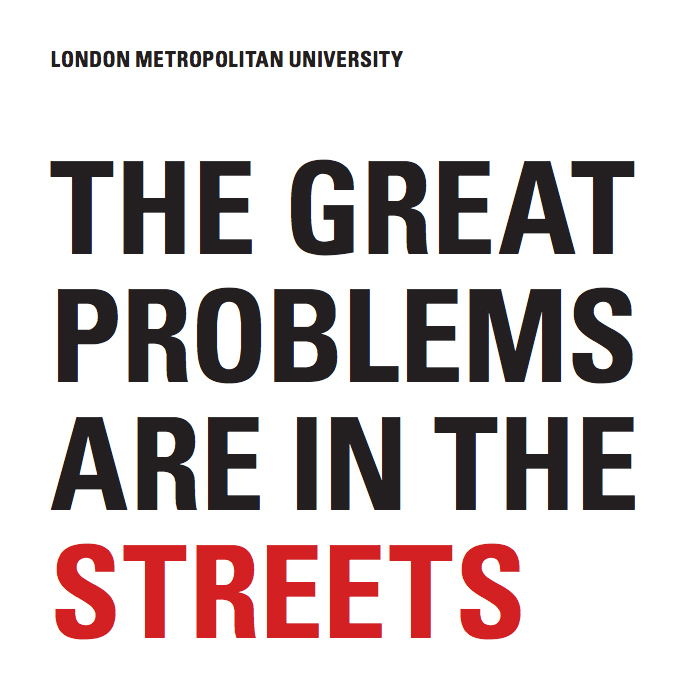 Editor’s Note: Fiona Elvines is Operations Coordinator at Rape Crisis South London where she helps people who have experienced rape and/or childhood sexual abuse. She is also in her final year of PhD research at London Metropolitan University where she is studying street harassment.
Editor’s Note: Fiona Elvines is Operations Coordinator at Rape Crisis South London where she helps people who have experienced rape and/or childhood sexual abuse. She is also in her final year of PhD research at London Metropolitan University where she is studying street harassment.
Hollaback Edinburgh recently conducted an interview with her about her dissertation (The Great Problems are in the Streets: Women’s Experiences of Male Stranger Intrusion) and they kindly allowed me to excerpt some of it here. You can read the full interview on their site.
1. What led you to this research?
I came to this research initially through my work at Rape Crisis and thinking about how the impact of the routine intrusions women encounter from men on the street make it incredibly difficult to feel like you can move past an experience of criminalised sexual violence like rape. I wanted to know more about what women who have experiences along the continuum of sexual violence feel about intrusion from male strangers in public space, and how we strategise or make sense of ourselves through it. I was also really frustrated by the victim blaming I encounter in working in rape prevention and wanted to develop an evidence base for the numerous ways in which women already limit and adapt our daily movements based on men’s intrusive practices.
2. Why do you think this is under-researched?
 I think that the study of all forms of male violence against women is still really young and that feminists have worked hard to capture the evidence needed for policy change on issues like rape, domestic abuse and childhood sexual abuse. As much as I think this focus has been and is necessary, I feel it’s resulted in a loss of interest in the routine aspects of men’s intrusive practices, missing a crucial aspect of women’s everyday experience. I also think male stranger intrusion is normalised, minimised and trivialised, and that the sheer frequency of intrusive encounters means forgetting is brought in as a natural coping strategy. The women I’ve spoken with have told me how, when they have spoken out about what they’ve experienced be it to friends or parents or a partner, they have been met with a response that minimises their experience of it, reframes the intrusion as complimentary, or simply tells her it’s just part of growing up. All of this has resulted in a lack of understanding in terms of the scale of the problem and the impact it has on women’s daily decision making, sense of safety and relationship to our bodies and our self. This is starting to change, particularly with the rise of blogs such as Hollaback and Everyday Sexism, which have meant that we are starting to get a sense of the extent to which women are negotiating men’s intrusion in public space and beginning to hear experiences that might help to validate our own.
I think that the study of all forms of male violence against women is still really young and that feminists have worked hard to capture the evidence needed for policy change on issues like rape, domestic abuse and childhood sexual abuse. As much as I think this focus has been and is necessary, I feel it’s resulted in a loss of interest in the routine aspects of men’s intrusive practices, missing a crucial aspect of women’s everyday experience. I also think male stranger intrusion is normalised, minimised and trivialised, and that the sheer frequency of intrusive encounters means forgetting is brought in as a natural coping strategy. The women I’ve spoken with have told me how, when they have spoken out about what they’ve experienced be it to friends or parents or a partner, they have been met with a response that minimises their experience of it, reframes the intrusion as complimentary, or simply tells her it’s just part of growing up. All of this has resulted in a lack of understanding in terms of the scale of the problem and the impact it has on women’s daily decision making, sense of safety and relationship to our bodies and our self. This is starting to change, particularly with the rise of blogs such as Hollaback and Everyday Sexism, which have meant that we are starting to get a sense of the extent to which women are negotiating men’s intrusion in public space and beginning to hear experiences that might help to validate our own.
3. What kind of response did you get when you put the call out for participants?
The response was amazing. I received over 150 emails from women within 2 hours of my call being tweeted.
4. Were you surprised by the response?
Completely. I really wasn’t expecting to speak to more than 20 women. I ended up with 51 participants who completed an initial conversation with me and then kept a diary of their experiences from 2 weeks to 2 months before talking to me again or sending through feedback about their findings and any changes or discoveries they had made during the course of the research. I feel the response itself demonstrates the extent to which women experience such encounters as meaningful in particular ways, and illustrates how spaces for us to talk about the meaning they have for us are difficult to find.
5. What would you say to people who have been street harassed?
The most important message to get out there I believe has to do with countering these early responses. You get to decide what does and doesn’t count as violence or intrusion or harassment. Your experience of it is valid and you get to choose the meaning that it has. I would also say that no one can tell you how you should, or if you should, respond, react or manage each encounter. Everyone I spoke with does some version of an escalation calculation to strategise their response based on perceived safety and personal contextual factors such as history, mood or simply tiredness. We can only benefit from an increase in women talking about experiences the whole way along the continuum of sexual violence. Hopefully moving us towards a more complete understanding of the complexity, impact and motivations behind men’s intrusive practices, and women’s resistance and resilience in the face of them.
